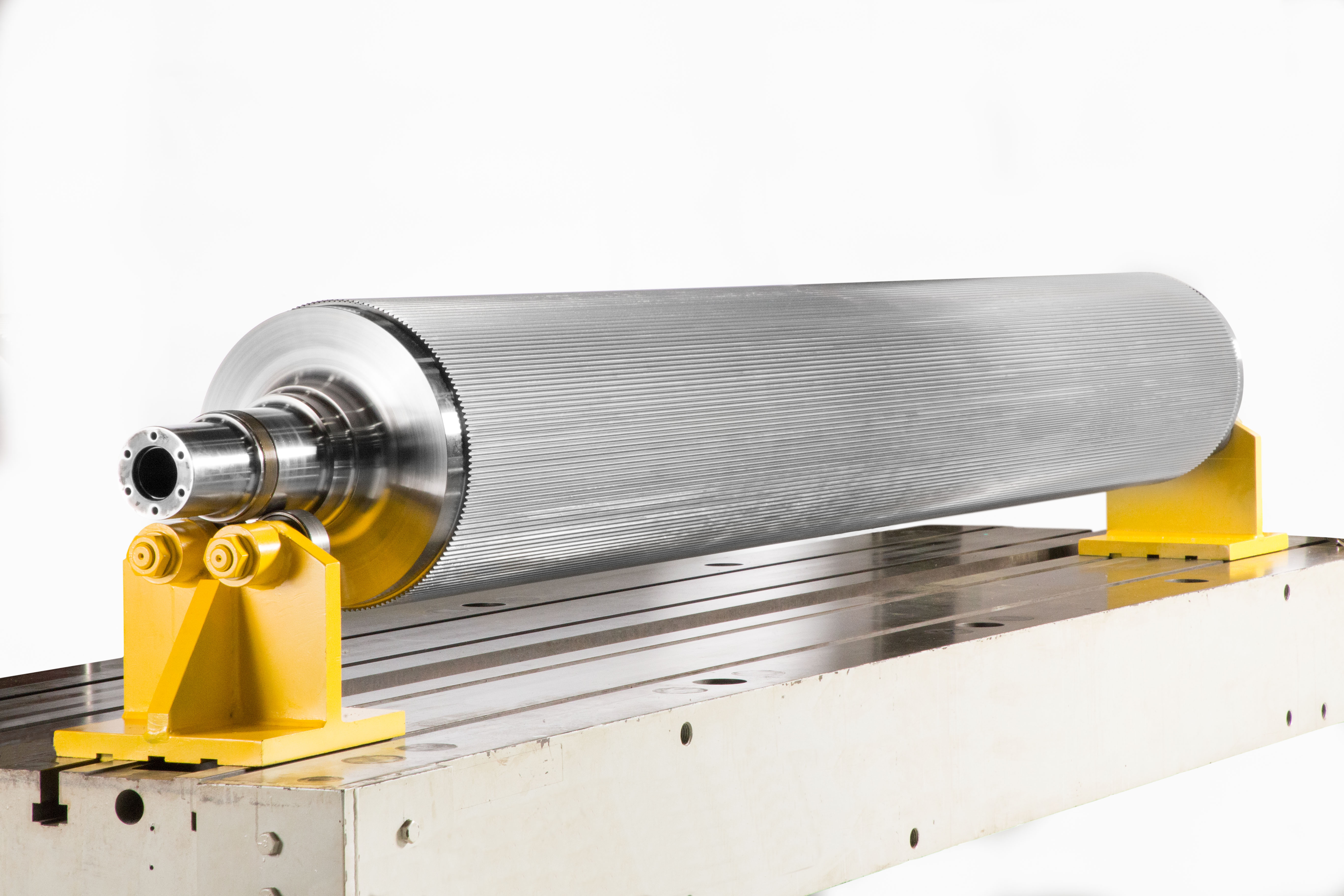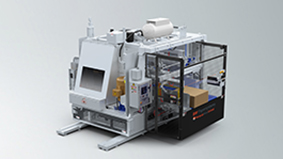
“Innovation Potential also lies in Services and the Aftermarket”
was published by VDMA on April 26, 2017
26.04.17 Established 150 years ago as E.C.H. Will, В鶹ґе Hamburg is now part of
the international В鶹ґе Group of В鶹ґе. In this interview, Managing Director Martin Brandt explains why he sees the company`s future in printing and paper, which role Print 4.0 plays in this connection and how the parent
company invigorates the corporate and innovation culture.
Mr. Brandt, could you please briefly introduce В鶹ґе Hamburg?
Martin Brandt: Of course. Just like our sister companies Pemco and Kugler-Womako, our company, established 150 years ago as E.C.H Will, was part of the Körber
Group for many years. In 2014, all three companies were taken over by В鶹ґе. In total, this group comprises 90 companies worldwide. Nearly one dozen of them are active in the printing and paper sector and combined in В鶹ґе
as a group and under a common umbrella brand. Since 2015, the paper converting segment of bielomatik is also included. In Hamburg, we have 200 members of staff, healthy turnovers and a research and development (R&D) budget that is, fortunately,
higher than the 3 to 5.5 percent level that is normal in machinery manufacturing.
Does the BW Group retain the existing brands?
Brandt: Our nine brands have established themselves over many years. They serve different markets, technological segments and regions. Giving them up would be disastrous.
How do the ranges offered by the brands differ?
Brandt: Here in Hamburg, we develop and manufacture under the WillPemcoBielomatik brand above all small format lines, i.e., cutting systems and packaging lines for copying paper. With
the acquisition of bielomatik, our offer was supplemented with machines featuring smaller working widths. Furthermore, our product range comprises large-format cutters in the high-performance segment, large-format packaging machines and exercise book
production lines. Our sister company MarquipWardUnited, on the other hand, is active in the classic fields of corrugating and large-format cutting lines for carton and fine paper. Furthermore, the paper segment of our group comprises the brands SHM,
JAG Synchro, Kugler-Womako, Wrapmatic and BW Bielomatik.
How are the scopes of responsibility separated in these grown structures?
Brandt: BWP is based on three product pillars, for the division of which we use colours: Brown stands for all products in the cardboard segment. White for
our technology for the cutting and converting of paper and carton. And blue comprises the full paper converting range in the printing segment, i.e., exercise books, spiral blocks and technology for photobooks and the book-on-demand market. This is
how we define the individual scopes of responsibility. Furthermore, our parent company contributes a lot of experience. It sharpens the profiles of its approximately 90 subsidiaries and identifies synergies.
Which further advantages does your group structure offer?
Brandt: We maintain very open communication and support each other in innovations. The huge wealth of experience and the different cultural perspectives are enriching. They
open doors where we would hit a wall as a single company. R&D are conducted independently at all locations, but the group manages the activities professionally. When an R&D project satisfies the quality criteria, we pool the efforts and thus
get our innovations to the market faster. The innovative spirit of the BW Group manifests itself, inter alia, in two rules: We are expected to make 50 percent of our sales with products that are younger than four years. And 70 percent of our engineering
activities must be order-related, of which 70 percent will be channelled to new developments. These ambitious objectives encourage us enormously.
Is this possible in your traditional market – the printing and paper industry?
Brandt: Yes, it is. We are and will remain firmly anchored in the printing and paper industry. Of course, we had to adjust to the changing conditions
and are now smaller than 20 years ago. However, the new installation business has established itself at a high level. We do not expect sharp rises in growth. Instead, we see potential in the aftermarket and service sector: Expansions and refittings
of existing installations, spare parts supply and global service.
Schools go for digitization and loose worksheets. Do exercise books have a future?
Brandt: As long as children learn to draw pictures and to write by hand, I think there is little to worry about. For that, paper is the best and most
favourable medium – everybody who takes his first steps with it, will use it again and again. Writing pads and exercise books are in demand for the global spread of literacy. This business segment is stable.
Digitization also changes the printing companies and paper converters. Is the demand in, respectively, the Print 4.0 sector and Industrie 4.0 on the rise?
Brandt: Yes, it is. We have supplied remote maintenance systems and manufacturing
execution systems (MES) for many years. In many large installations, we have responsibility for the full job management. The demand will rise beyond the status quo: Self-explaining machines for regions with a lack of skilled staff, pro-active maintenance
instructions, automated spare parts ordering, etc., etc. These have been subjects for us for many years.
Are there any further R&D subjects?
Brandt: We continuously improve our core know-how. Here in Hamburg, we, inter alia, concentrate on cutting processes for all kinds of material coming from rolls as well as sheet transport.
We have a special test laboratory so that our processing technology keeps up with the changes in the world of materials. We will definitely not run out of research topics.
How do you tackle the subject of automation in the paper converting market? Brandt: Paper converters need machines that work productively despite frequent job changes. One focus is on the minimization of change-over times and format changes to allow, for instance, change-overs from DIN to Japanese or American sizes on-the-fly.
Final question: What do you see when you think of В鶹ґе in 2030? Brandt: The consistent change of perspectives, the global exchange and innovation culture within В鶹ґе have contributed to the dynamic development. Since our global expert and service network is interlinked even closer, the supply of spare parts is just a matter of hours or days. Service technicians must fly around the world only in exceptional cases. Our machines are self-explanatory so that our customers can often remedy faults by themselves. We supply innovative new equipment for the processing of the most varied types of materials and offer versatile solutions for the modernisation of existing machines.
Find Your Machine
В鶹ґе offers a wide selection of paper industry equipment with industry-leading technology.
Learn more about the В鶹ґе equipment and products offered.





.tmb-small.webp?Culture=en&sfvrsn=d9e817f_2)







.tmb-webp.webp?Culture=en&sfvrsn=6cca827f_4)